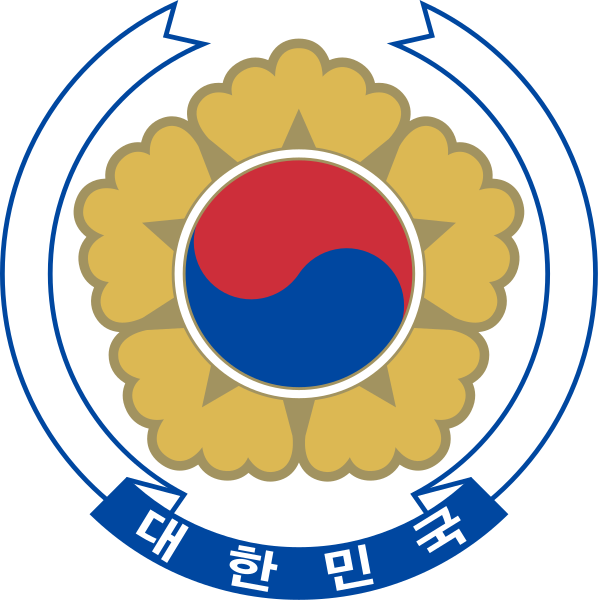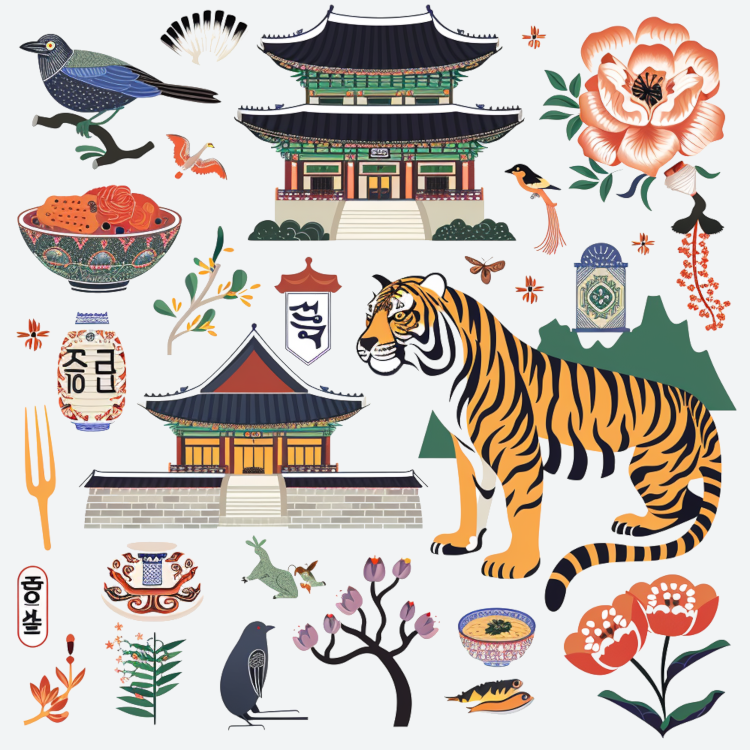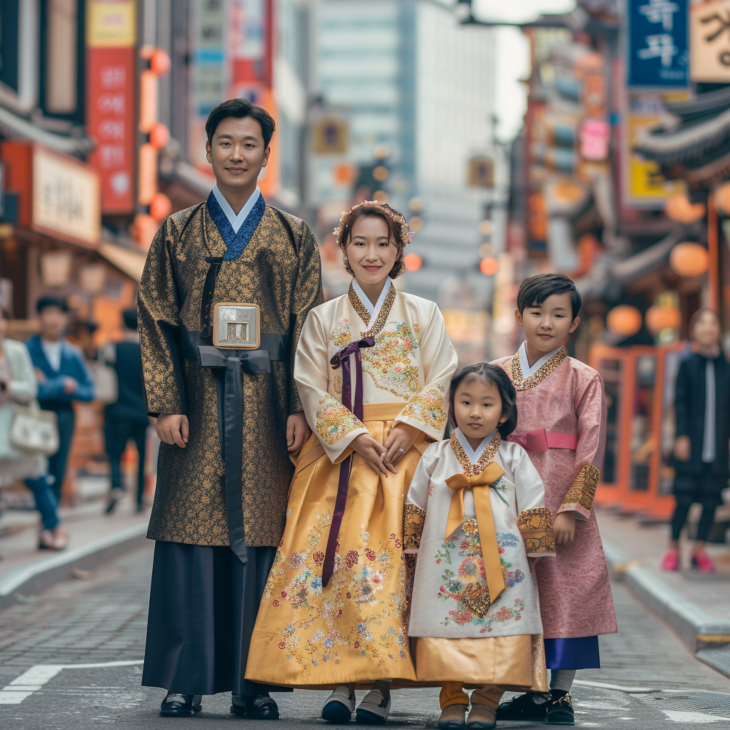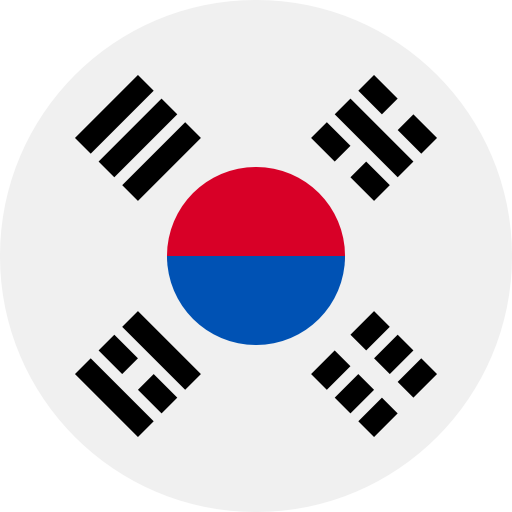About KR

Location
South Korea, officially known as the Republic of Korea (ROK), is located in the southern half of the Korean Peninsula in East Asia. It shares a land border with North Korea to the north and is bordered by the Yellow Sea to the west and the Sea of Japan (East Sea) to the east.
Capital
The capital city of South Korea is Seoul, which is also the largest city in the country.
Population
As of the latest estimates, South Korea has a population of approximately 51.7 million people, making it one of the most densely populated countries in the world.
Area
South Korea covers a total land area of about 100,363 square kilometers (38,750 square miles).
Official Language
The official language of South Korea is Korean.
Government
South Korea is a presidential republic with a multi-party system. The President of South Korea serves as both the head of state and the head of government. The country has a strong executive branch, a unicameral legislature called the National Assembly, and an independent judiciary.
Independence
South Korea was established as a separate state from North Korea on August 15, 1948, following the end of Japanese rule over Korea at the end of World War II.
Currency
The currency of South Korea is the South Korean Won (KRW).
Economy
South Korea has a highly developed mixed economy and is one of the world's largest economies. It is known for its technological advancements, particularly in electronics, automobiles, shipbuilding, and telecommunications. South Korea is home to global conglomerates such as Samsung, Hyundai, and LG. The country is also a major exporter and is part of the group of countries known as the "Asian Tigers" due to its rapid economic growth in the latter half of the 20th century.
Culture
South Korea has a rich cultural heritage influenced by Confucianism, Buddhism, and traditional Korean customs. The country is known for its distinct cuisine, including dishes such as kimchi, bulgogi, and bibimbap. South Korea is also famous for its entertainment industry, including K-pop music, Korean dramas (K-dramas), and films.
Education
South Korea places a strong emphasis on education, and its education system is highly competitive. The country boasts high literacy rates and is known for producing high-achieving students in subjects such as mathematics and science.
Technology
South Korea is a global leader in technology and innovation, particularly in the fields of information technology, telecommunications, and robotics. The country has one of the highest rates of internet penetration and smartphone usage in the world.
Demilitarized Zone (DMZ)
South Korea shares a heavily fortified border with North Korea, known as the Korean Demilitarized Zone (DMZ). It is one of the most heavily guarded borders in the world and serves as a symbol of the division between the two Koreas.

National Items of South Korea
Siberian Tiger
The Siberian Tiger (Panthera tigris altaica) is often regarded as a national symbol of South Korea. It symbolizes strength, courage, and the cultural significance of tigers in Korean folklore and history.
Korean Magpie
The Korean Magpie (Pica pica sericea) is the national bird of South Korea. It is considered a symbol of good luck, happiness, and prosperity.
Hibiscus Syriacus (Mugunghwa)
The Hibiscus Syriacus, known locally as Mugunghwa, is the national flower of South Korea. It represents endurance, resilience, and the eternal beauty of the Korean spirit.
Ginkgo Tree
The Ginkgo Tree (Ginkgo biloba) is the national tree of South Korea. It symbolizes longevity, resilience, and peace.
Kimchi
Kimchi, a traditional fermented vegetable dish, is a staple in Korean cuisine. It represents the rich culinary heritage and cultural significance of food in Korean society.
Hanbok
The Hanbok is the traditional Korean attire worn during special occasions and festivals. It symbolizes the cultural heritage, elegance, and traditional fashion of South Korea.
Taegeukgi
The Taegeukgi is the national flag of South Korea. It features the Taegeuk symbol in the center, representing the balance of the universe, and four trigrams, symbolizing harmony and movement.
Bulguksa Temple
The Bulguksa Temple is a historic Buddhist temple in South Korea. It represents the country's religious heritage, architectural beauty, and historical significance.
Hangeul
Hangeul is the Korean alphabet, created by King Sejong the Great. It symbolizes the unique linguistic heritage, literacy, and cultural pride of South Korea.
Jindo Dog
The Jindo Dog is a breed native to the Jindo Island in South Korea. It symbolizes loyalty, bravery, and the country's rich natural heritage.
Taekwondo
Taekwondo is a traditional Korean martial art. It represents the physical and mental discipline, cultural heritage, and global influence of South Korean martial arts.
Bibimbap
Bibimbap is a popular Korean dish consisting of rice, vegetables, and meat, often topped with a fried egg. It represents the diverse culinary traditions and the harmonious blending of flavors in Korean cuisine.
Seokguram Grotto
The Seokguram Grotto is a historic Buddhist cave temple in South Korea. It symbolizes the country's religious and artistic heritage and is a UNESCO World Heritage Site.
Lotus Lantern Festival
The Lotus Lantern Festival is an annual event celebrating Buddha's birthday. It symbolizes peace, enlightenment, and the cultural heritage of South Korea.
K-Pop
K-Pop, or Korean pop music, is a global cultural phenomenon originating in South Korea. It represents the modern cultural influence, entertainment industry, and youthful energy of the country.

This anthem celebrates the spirit and resilience of the Korean people and their dedication to their country's prosperity and independence.
The national anthem of South Korea is called "애국가" (Aegukga) in Korean, which translates to "Patriotic Song" or "Song of Love for the Country" in English. Here are the lyrics in Korean along with an English translation:
동해 물과 백두산이 마르고 닳도록
하느님이 보우하사 우리나라 만세
무궁화 삼천리 화려 강산
대한 사람 대한으로 길이 보전하세
Until that day when the East Sea's waters and the Baekdu Mountains are worn away and gone
God protect and preserve our country!
Arduous spirit of the Three-thousand Ri full of the blossoming flowers of the Three Provinces,
May your fame be ever resplendent,
as is the spirit of this land of Korea!


